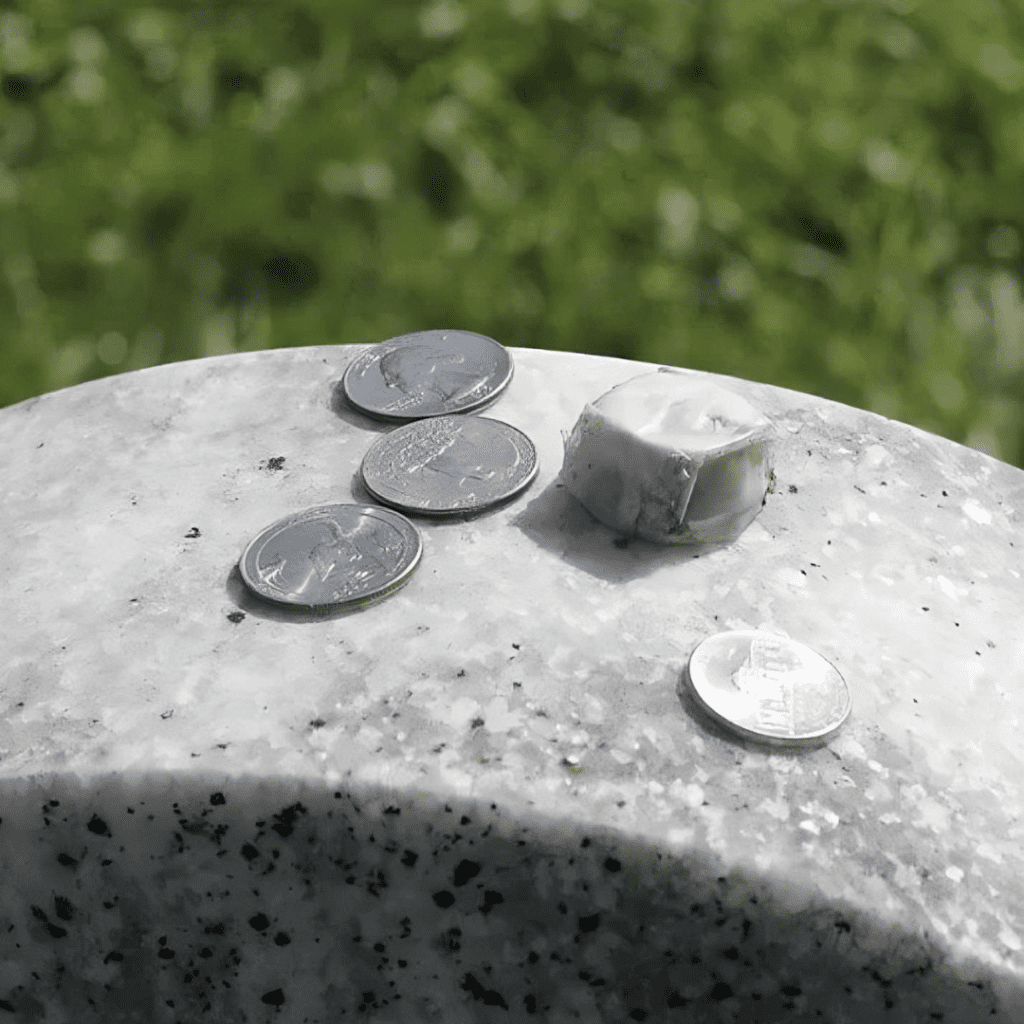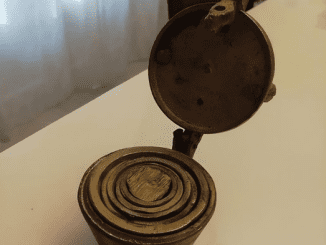Losing a loved one is a profoundly challenging experience, and people often express their grief and remembrance in deeply personal ways. While various cultures have traditions of leaving offerings like flowers or snacks on graves, the practice of placing coins on gravestones holds a special meaning, particularly for veterans and their families.
The history of this solemn tradition is not entirely clear, with some suggestions tracing its origins back to the Roman Empire. However, the practice gained prominent recognition during the Vietnam War era. Amidst the political divide and sensitivities surrounding the war, leaving a coin on a fallen soldier’s grave was considered a discreet and practical way to communicate a visit without potentially uncomfortable discussions with the family.

The tradition of placing coins on gravestones symbolizes profound respect for fallen comrades, with each denomination carrying a specific meaning. A simple penny signifies that the visitor has paid their respects, a nickel represents a shared boot camp experience, a dime signifies that the visitor had served alongside the deceased, and a quarter holds a particularly poignant significance, indicating that the person was present at the time of the soldier’s death.
This practice is part of a broader tradition in military culture, as challenge coins have also become a significant aspect of camaraderie among service members. Though holding no monetary value, these coins represent unity and a shared sense of purpose among those who have served their country.
While the tradition of placing coins on gravestones is uniquely associated with the military, the use of coins in symbolic rituals is not exclusive to this context. Across various cultures, coins have played significant roles in expressing good luck, making wishes, or serving as symbols of status and fortune. The exact origins of the gravestone coin tradition may remain unclear, but it nonetheless serves as a poignant way to acknowledge and honor the sacrifices made by those in the armed forces and their families.
Interestingly, the placement of coins on gravestones has also become a way for the living to maintain a connection with the deceased. The act of leaving a coin can be seen as a tangible expression of remembrance, a small gesture that keeps the memory of the loved one alive and affirms their continued presence in the lives of those they’ve left behind.
Moreover, the tradition has evolved to include other meaningful symbols beyond just coins. Some families may leave small mementos, such as a favorite trinket or a note, alongside the coins as a way to personalize the tribute. These additional offerings can provide a deeper sense of connection and a more intimate way to honor the unique life and legacy of the individual.
Ultimately, the tradition of placing coins on gravestones is a powerful and enduring testament to the human need to commemorate and remember those we have lost. Whether rooted in military history or reflecting broader cultural symbolism, this practice serves as a moving reminder of the lasting impact that our loved ones have on our lives, and the importance of preserving their memory through simple yet meaningful gestures.


